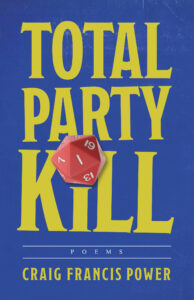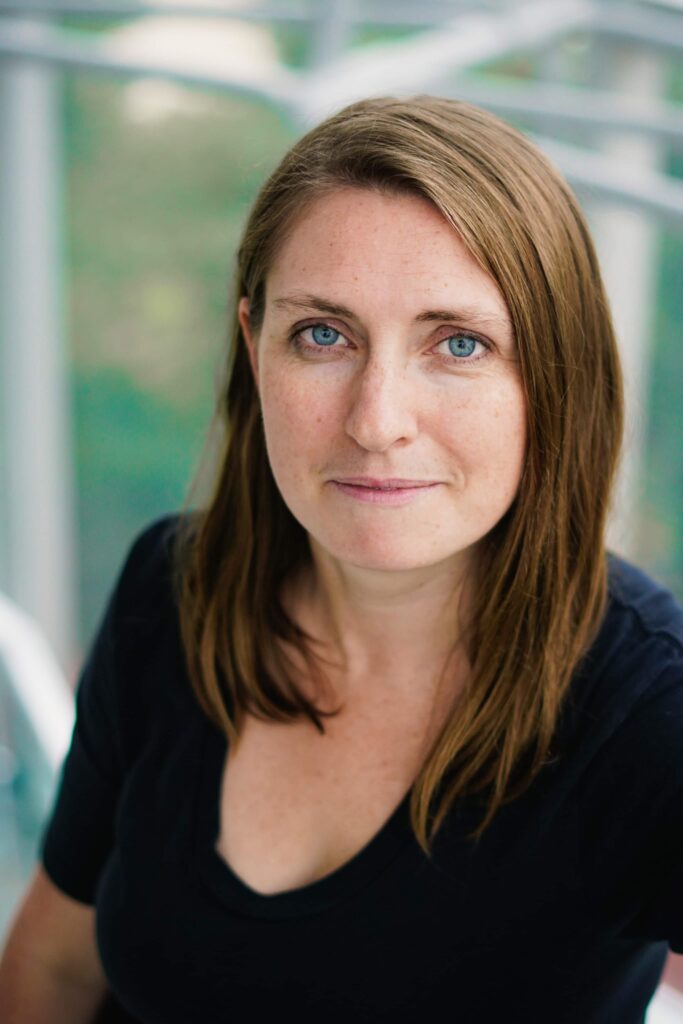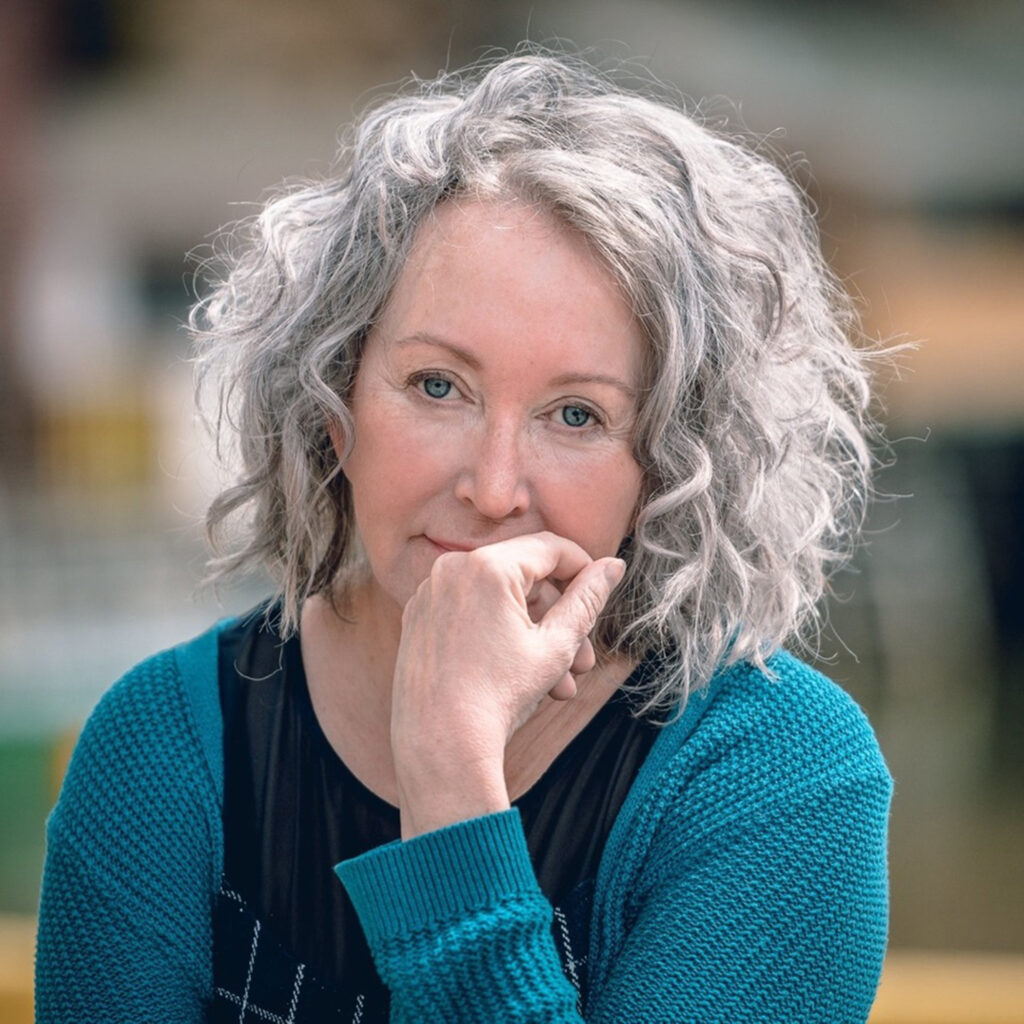“There’s lots of places to hide in prose, but good poetry is as clean as an ax blade”: Craig Francis Power releases Total Party Kill
January 2025
I was surprised TPK was your first collection of poetry – I really assumed you’d published a volume before. Not really a question, guess I just think you’re a poetic sort of guy! But of course you are the author of three novels – so why take this format with this (very personal) story, as opposed to a novel or even a memoir?
I didn’t actually choose the format in any conscious sense, and for some time at the beginning of this experiment I didn’t think what I was writing could be considered poetry. That only came afterward, when I showed Mark Callanan a few of them, and unfortunately for us all, he urged me to continue. It’s only because of his guidance that I was able to finish it to our mutual satisfaction, and the whole process in many ways was a kind of mentorship for me—which was nice because we’ve been friends for ages and I have always admired his work and his criticality. Nothing gets by that guy, and he does not suffer any bullshit.
I wanted to be a poet for a long time—as a young person I was quite obsessed with it—but somewhere along the line it became apparent that the amount of technique, dedication, and talent required of poets was well beyond whatever meagre literary gifts I possess, and I found myself writing other things.
There’s lots of places to hide in prose, but good poetry is as clean as an ax blade. You had better be on point. And those poems better sing. But because nobody reads it, I felt very free in writing the collection—not dissimilar to how I feel about my visual art practice: no one cares, so therefore, it’s more fun.
How did this “genre bending quest” come about? What does employing the world of Dungeons and Dragons allow you to express? I don’t know anything about D&D, but never felt confused by the text, but perhaps there are additional layers of insight for those who are players?
It all came about by accident. There’s this D&D character I had for a while who was a real riot to play—a has-been degenerate actor to whom, as a lark, I dedicated Total Party Kill—and to amuse my friends with whom I play the game, I started composing these comical little monologues in his voice. Almost right away, however, the tenor of them changed, and because there was quite a bit of overlap between myself and this character, my own life began to bleed into things—though I must say that in the collection, the lines between what is reality and fantasy, factual and fictional, remains pretty nebulous, even to me. The fantasy realm of D&D brought me to an emotional truth that a naturalistic rendering just does not allow, and within the poems—sometimes within a line—the speaker shifts back and forth between the fantasy world and their “reality.”
I had only been sober a couple years at that point, and had recently gotten into the 12 Steps of Recovery, and had, as a result, spent a lot of time writing out what we call a “fearless and searching moral inventory” of myself, so certain things from my past and my childhood—poverty, addiction, trauma, violence, et cetera—were rather front of mind, not to mention of course, the litany of wrongs I’d committed against myself and others while in the depths of my addiction.
I began to drink alcoholically and to play D&D and to want to write poetry around the same time (age 13) so for me, the three things are sort of tied together: they were all means by which I could escape what was happening in my life, and I can think of no better metaphor than D&D for the nightmare that is being in active addiction, and even sometimes, in recovery. You’re just fighting that monster all the time, but what sucks is that the monster is right there with you every goddamn day—in the mirror. There’s no cure. No victory. And yet, my life today has never been better.
And you don’t have to know anything about the game to get what’s happening in these poems—D&D is just the juice that makes the thing go—but there are a lot of inside jokes and Easter eggs in there for people who know the lore.

One aspect of this technique I’m guessing is that it allows you to be very, very graphic about family trauma and addiction without writing a flat-out confessional (though you’re still putting yourself out there). Is that right?
Yes. What’s that quote? It’s like, Bad confessional poetry says, “Look at me bleed,” but good confessional poetry makes the reader bleed with you. So, the D&D elements inform the addiction stuff and vise-versa, but they also create enough space for the reader to slip into both those worlds without being overwhelmed by either.
I know from attending your artist talk at Christina Parker’s that your family and especially your father informs/haunts your work, and that is not a happy history. But your mom was there and you spoke quite frankly in front of her. Did you give her a head’s up about this collection? Do you have to take your family into consideration in this kind of writing, or just aim to do the best as you can?
I just do the best I can, but I told them what I was up to. I’m open with my mom in particular—she’s one of my closest friends. And really, given everything I’ve put my family through over the years, I think this collection ranks pretty low on my list of sins, if at all. I’m told there’s an axiom or whatever that alcoholic and dysfunctional families operate under whether they know it or not: don’t talk, don’t trust, don’t feel. In that way, this book can be seen as a remedy to that—not just for me and my family, but maybe for someone out there who’s been affected by this shit.
I don’t know why, but I’m reminded of this definition of love that I think is both accurate and pertinent and was on my mind a lot while writing the collection: love is to extend yourself for your own and another person’s spiritual growth. At the risk of sounding trite, that’s what the collection is like for me: a painful and difficult gift, but a gift nonetheless.
My dad died a couple years ago—a drink in his hand. I hadn’t spoken to him in like 20 years and did not do so even as he was dying—I didn’t see much point in it. I mean, what could we possibly say to one another? One of the last things he had said to me back then was that I would never be a writer. He—very sporadically—and his brother Bill both worked at the Evening Telegram, and I suspect writing was something he’d always wanted to do, but he was just too goddamn sick. I don’t know if it’s because of my writing of this book, or because of my own recovery, or some combination thereof, but I felt nothing but compassion for the guy—a miracle, really. He had an extremely difficult life right from the jump and I don’t know if he ever felt much peace or contentment at any time. We were very similar in very many ways, which was something I could, until recently, never accept.
Was TPK hard to write? Was it therapeutic? Was it both?
Very much both. Hard and therapeutic emotionally for what are obvious reasons, but also difficult in terms of form because I was forced to study poetry in a manner to which I had not endeavoured to do since I flunked out of MUN at 23 (?) years old.
That’s again where Mark’s guidance was so important to the work. He turned me onto a lot of poetry that seemed relevant to what I was doing, and it wasn’t for me merely to just read that stuff, but to STUDY it—right down to the iambics and the frigging spondees. It was transformative. It will shock no one to hear that poets are just as nerdy as D&D players, perhaps more so.
What are you working on next, and does that include any acting gigs (you were great in Grace)?
I’m working on a number of things: some short stories, a horror-suspense novel about a cult that fronts as a Celtic dance company, and another collection of poetry—sonnets written in the voice of Donald J Trump. I have also written a number of screenplays and am figuring out how one goes about getting such things made—TV and film seems an extremely opaque world, and I suspect it is made so purposefully.
I absolutely loved acting in Grace. It was very difficult and fun, and while I’ve got no further roles or whatever coming up, Poverty Cove has hired me a few times recently to read Emily Bridger’s latest stage-play for workshop—it’s weird and dark and brutal and funny. Right up my alley.
Total Party Kill is published by Breakwater Books.



